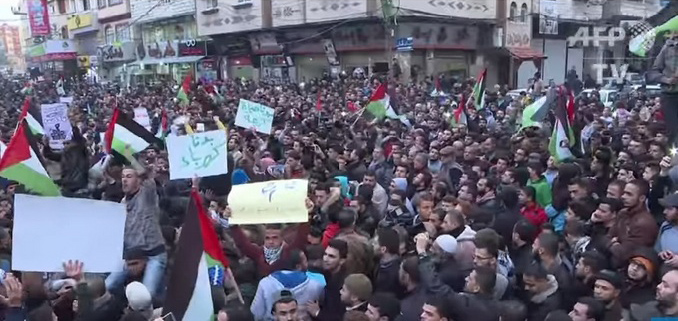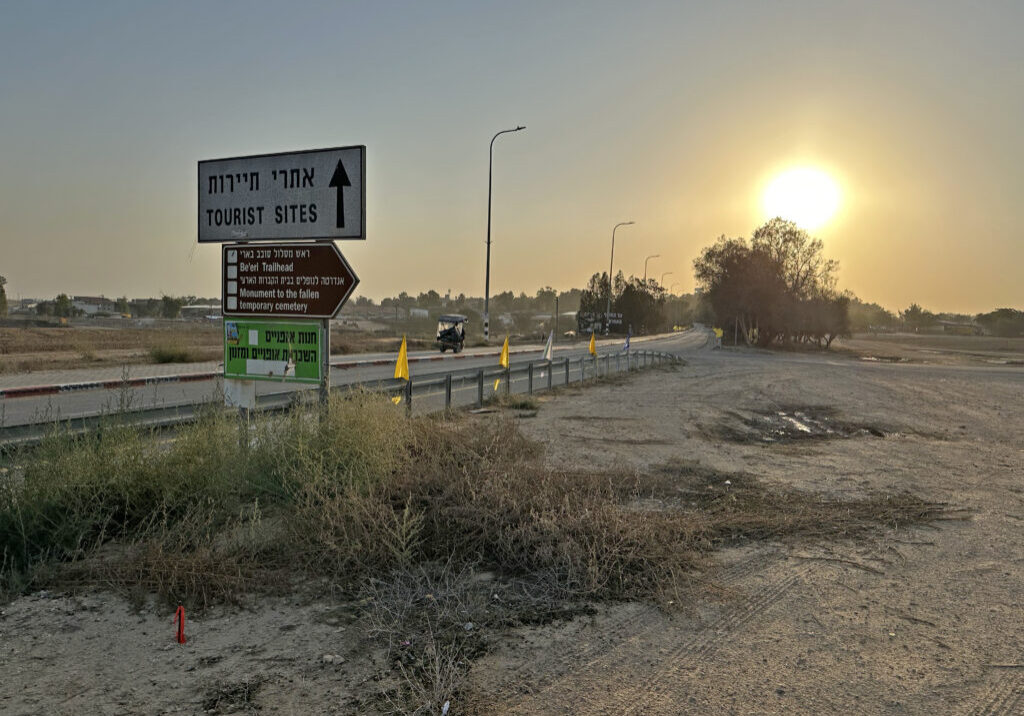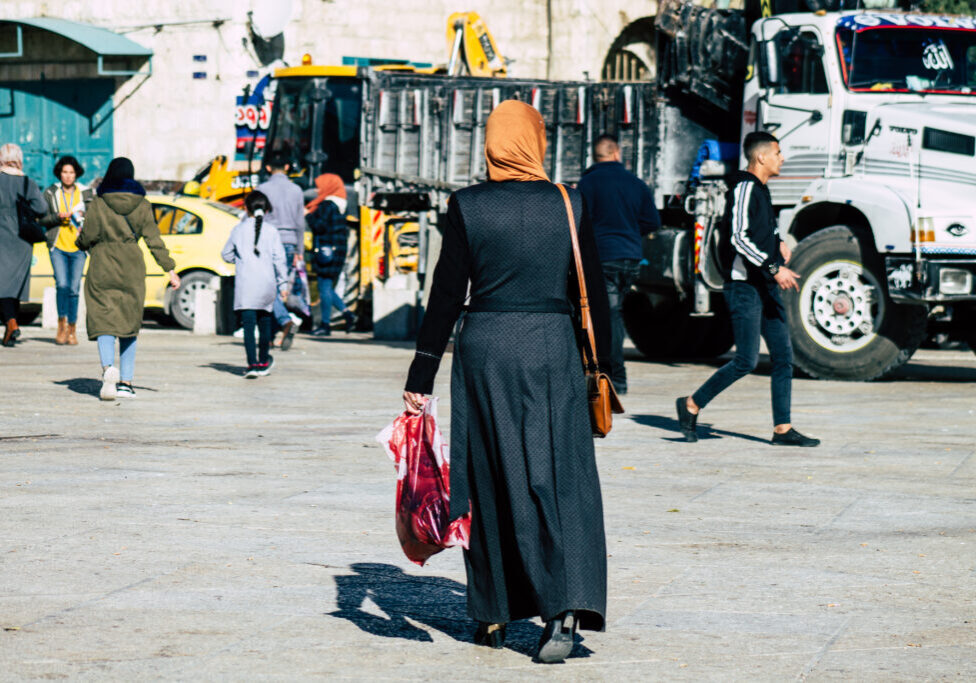Australia/Israel Review
Has the “Arab Spring” reached Gaza?
Mar 29, 2019 | Yoni Ben Menachem

Hamas has failed in its attempts to silence media coverage of the protest demonstrations in Gaza against the rising cost of living. Despite Hamas’ efforts, these demonstrations continue.
The demonstrations are led by an independent youth movement called “We Want to Live!” [Bidna naish, in Arabic], which receives widespread public support and backing from PLO factions.
By the end of the week of March 17, Hamas security forces had carried out dozens of arrests throughout the Gaza Strip, detaining demonstrators who took part in the protests of the “We Want to Live” movement. Several journalists covering the demonstrations were also arrested.
The demonstrations began on March 14, in protest against the rising cost of living in the Gaza Strip. But Gazan residents were directing their anger toward the Hamas regime. Hamas security forces dispersed the demonstrators with gunfire and clubs, especially in the central demonstrations in the Jabalya refugee camp and Deir al-Balah.
The Palestinian Centre for Human Rights reported on March 16 that the demonstrations against the cost of living took place in the Jabalya, Al-Bureij, and Nuseirat refugee camps and the cities of Khan Yunis and Rafah, and that these protests were forcibly dispersed by Hamas security forces.
The director of the Centre for Human Rights, Jamil Sarhan, and another lawyer, Bahar al-Turkhamani, were beaten by Hamas police.
The anger of the residents of the Gaza Strip is increasing due to the difficult economic situation, taxes, which Hamas has imposed, as well as rising unemployment. Hamas is also suffering from severe financial distress, as the first anniversary of the “March of Return” approaches on March 30.
Many in the Gaza Strip saw the first year of the Hamas-initiated protests as a failure because the campaign did not break the Israeli blockade on the Gaza Strip as Hamas promised, despite more than 100 fatalities and thousands of casualties.
Background to the current wave of protest
According to sources in the Gaza Strip, the “We Want to Live” movement is an independent youth movement that has no ties to any political body and was established against the background of tax increases imposed by Hamas on the population and on the unemployment rate among the younger generation, which stands at 69%.
Gazans say that Hamas is increasing taxes to build up the organisation’s revenues. Those who are suffering the most in Gaza are the residents who are not affiliated with the organisation and do not receive services from Hamas institutions.
According to residents’ testimonies, Hamas imposed taxes on medical treatment in hospitals and on surgeries, even on those people who already paid for medical insurance. The taxes on vehicle licensing were also raised, and a tax of NIS 200 was imposed on all goods weighing more than a ton.
Hamas also increased the tax on goods smuggled from Egypt into the Gaza Strip through the tunnels. A pack of “Royal” cigarettes, which were sold for 4 NIS (A$1.15), now cost between NIS 26 and NIS 30 (A$7.52-A$8.68).
PLO factions support the protest
Representatives of all the Palestinian factions met on March 16 in the offices of the Popular Front in the Gaza Strip to discuss the latest developments and the violent clampdown on the demonstrations. The Hamas and Islamic Jihad organisations boycotted the meeting.
At the end of the meeting, the participants issued a statement in support of the youth movement holding the demonstrations.
The following decisions were announced:
- Opposition to all forms of suppression of the protests and against any violations of the human rights of demonstrators;
- Calls upon Hamas to punish anyone who attacked the demonstrators and issue an apology to them, and to withdraw all its security personnel from the streets;
- Support for the just demands of the demonstrators;
- Calls upon Hamas to stop all types of taxes on goods and to introduce price controls; and
- Calls upon Egypt to renew the reconciliation process.
Fatah leader Muhammad Dahlan, who has good relations with the Hamas leadership in the Gaza Strip, called on the Hamas leadership to stop all forms of oppression and the use of force against the “cost of living” demonstrators. He also called on Egypt to intervene and secure a Palestinian national agreement.
These developments are in accordance with the Ramallah-based Palestinian Authority (PA) and its head, Mahmoud Abbas, who is encouraging these protests. Two years ago, on the advice of Palestinian Intelligence Chief Majed Faraj, Abbas decided to impose sanctions on the Gaza Strip and worsen the situation there to make the economic situation so dire that Gazan residents would rebel against Hamas.
Senior Fatah official Hussein a-Sheikh said that the Palestinian leadership is in contact with influential Muslim countries to pressure the Hamas movement into stopping the oppressive tactics used against innocent civilians demanding a dignified lifestyle and the abolition of illegal taxes. PA sources reported that Abbas appealed to Egypt and Qatar to exert influence on Hamas to stop suppressing the demonstrators.
Fatah spokesman Osama al-Qawasmeh appeared on official Palestinian television and called on Gazans to continue their demonstrations: “Our message is to our heroes who are fighting Hamas militias in the Gaza Strip, because the road to Jerusalem begins with a revolution against tyranny. We in the Fatah movement stand with you, and we will always be loyal to you.”
Where are things headed?
In the Gaza Strip, there is already talk that the “Arab Spring” has reached the Gaza Strip and that Hamas attempts to divert internal and international attention from the demonstrations by firing two M-75 Fajr rockets at Tel Aviv on March 15 had failed [though this attack is now reported to have been an accident].
The phenomenon of the “Arab Spring” began in Tunisia in 2011, after a vegetable vendor named Mohammed Bouazizi set himself on fire in the city of Sidi Said. Now, Gazans are following Bouazizi’s example in the Gaza Strip.
Ahmed Abu Tahn, 32, a resident of the Gaza Strip, set himself on fire on March 16, 2019, to protest the rising cost of living, after being expelled from his home when he could not afford the rent.
The violent repression and arrests of demonstrators by Hamas members are considered a “black stain” on the organisation, which is losing its popularity in the Gaza Strip.
Yoni Ben Menachem, a veteran Arab affairs and diplomatic commentator for Israel Radio and Television, is a senior Middle East analyst for the Jerusalem Centre for Public Affairs. He served as Director General and Chief Editor of the Israel Broadcasting Authority. © Jerusalem Centre for Public Affairs (www.jcpa.org), reprinted by permission, all rights reserved.
Tags: Fatah, Gaza, Hamas, Palestinians






